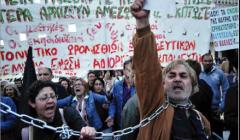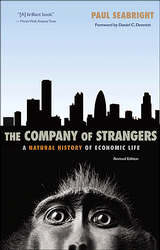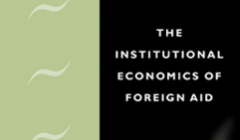This is the title the TLS has given to my review of the new books by Alison Wolf and Sheryl Sandberg. The review is here and you can download a pdf here.



Picture credit: Boardroom battles….. The Apprentice. Photograph: BBC/PA Photo, from the review in The Guardian.
December 2013 update: Martin Wolf has chosen The War of the Sexes as one of his books of the year in the Financial Times:
“With characteristic brilliance, Seabright uses biology, sociology, anthropology and economics to explain the war of the sexes. Men and women must co-operate to bring their offspring to maturity and conflict is inherent. Yet today opportunities for more successful and equal relations between the sexes are greater than ever before.”
Other reviews:
In chronological order of appearance:
John Whitfield in Nature.
A favorable but somewhat surrealistically inaccurate review by Roger Lewis in the Daily Mail.
Jonathan Rée in The Guardian
Fran Hawthorne in The New York Journal of Books
Camilla Power in Times Higher Education
Alexander Delaigue in Liberation (in French)
Anna Cristina Pertierra in Inside Story
Joshi Herrmann in The London Evening Standard
Michele Pridmore-Brown in the Times Literary Supplement, available here (pdf here)
Elaine Graham-Leigh in Counterfire
Some reactions in the blogosphere:
Sander Van Der Linden in LSE Review of Books
My post at the Huffington Post blog
Interviews, other coverage:
The Financial Security Project at Boston College
BBC Nightwaves, the interview runs from the 23 minutes point and lasts 11 minutes
VoxEU interview
The Moncrieff Show on Newstalk Radio Ireland, section 4, around 9 minutes in

This book of essays edited by the excellent Diane Coyle was published on 15th September 2012; the Amazon page is here. Diane also has a column posted on Vox.
I have a very short note in it but many of the other entries are fuller and more rewarding to read.

A Perfect Spy, by John Le Carré. Published by Knopf in 1986, now available in a Penguin reprint.
I read this book when it first came out and thought it a masterpiece. I re-read it recently with some trepidation, fearing I would be embarrassed by my earlier enthusiasm. I needn’t have worried: it remains a brilliant novel by any standards, and the character of Rick Pym, the protagonist’s father, is unforgettable.
Buy here.

Why Red Doesn’t Sound Like a Bell: Understanding the Feel of Consciousness. By Kevin O’Regan. Published in June 2011 by Oxford University Press.
An account of the nature of consciousness based on recent discoveries in neuroscience, especially in the study of mechanisms of attention allocation. Makes a persuasive case that the subjective sensations generated by different sense modalities are grounded in the motor capacities we deploy for exploring the world. Contrary to a widespread illusion about sense perception, we do not experience the world as a simultaneous panorama; instead our brain fills in the many gaps in our sense perception because it can explore the external world to verify the hypotheses it makes when filling in. This is a very original and important contribution to the philosophical understanding of consciousness that undermines traditional claims about the incorrigibility of subjective experience; far from being incorrigible, subjective experience is frequently thoroughly deluded about its own nature. Buy here.

Sleights of Mind: What the Neuroscience of Magic Reveals About our Everyday Deceptions. By Stephen L. Macknik, Susana Martinez Conde and Sandra Blakeslee. Published in November 2011 by Picador.
A tour by two leading neuroscientists and a fine science journalist of the many ways in which professional magicians exploit the known weaknesses in our mechanisms of allocating attention. Buy here.

Haiti: The Aftershocks of History. By Laurent Dubois. Published in January 2012 by Metropolitan Books.
A remarkable history of Haiti since the revolution and independence. Excellently written, largely structured as narrative but with valuable discussions of many aspects of Haitian culture, economics and society; an eye-opener in its accounts of the many ways outsiders have used and imagined the country for their own purposes. A biography fully worthy of its subject, a troubled but remarkable country. Buy here.

 Paul Seabright, The War of the Sexes: How Conflict and Cooperation have Shaped Men and Women Prehistory to the Present, Princeton University Press, published May 2012 (eBook April 2012)
Paul Seabright, The War of the Sexes: How Conflict and Cooperation have Shaped Men and Women Prehistory to the Present, Princeton University Press, published May 2012 (eBook April 2012)
As countless love songs, movies, and self-help books attest, men and women have long sought different things. The result? Seemingly inevitable conflict. Yet we belong to the most cooperative species on the planet. Isn’t there a way we can use this capacity to achieve greater harmony and equality between the sexes? In The War of the Sexes, Paul Seabright argues that there is–but first we must understand how the tension between conflict and cooperation developed in our remote evolutionary past, how it shaped the modern world, and how it still holds us back, both at home and at work.
Drawing on biology, sociology, anthropology, and economics, Seabright shows that conflict between the sexes is, paradoxically, the product of cooperation. The evolutionary niche–the long dependent childhood–carved out by our ancestors requires the highest level of cooperative talent. But it also gives couples more to fight about. Men and women became experts at influencing one another to achieve their cooperative ends, but also became trapped in strategies of manipulation and deception in pursuit of sex and partnership. In early societies, economic conditions moved the balance of power in favor of men, as they cornered scarce resources for use in the sexual bargain. Today, conditions have changed beyond recognition, yet inequalities between men and women persist, as the brains, talents, and preferences we inherited from our ancestors struggle to deal with the unpredictable forces unleashed by the modern information economy.
Men and women today have an unprecedented opportunity to achieve equal power and respect. But we need to understand the mixed inheritance of conflict and cooperation left to us by our primate ancestors if we are finally to escape their legacy.
Visit the book’s homepage at Princeton University Press.
Endorsements:
“From the mating habits of praying mantises to the battlefield of corporate boardrooms, Paul Seabright takes us on a fantastic journey across time and disciplines to uncover why–and how–men and women have learned to work together, and what forces still keep them apart in modern society.”–Linda Babcock, coauthor of Women Don’t Ask: The High Cost of Avoiding Negotiation–and Positive Strategies for Change
“The War of the Sexes is a delight to read. Paul Seabright launches a charm offensive on those who would prefer not to think that gender differences have any biological basis, and an intellectual offensive on those who think that these differences are large and intractable.”–Terri Apter, author of Working Women Don’t Have Wives
“Come on a journey from the Pleistocene to the present–a fascinating trip that uses the economic causes and consequences of our reproductive choices to explain relations between men and women through the ages. I recommend this book to anyone interested in the battle of the sexes (which is certainly everyone I know!—-it’s a great read.”–Anne C. Case, Princeton University
Translation rights: Held by Princeton University Press. For all enquiries please contact kwilliams@pupress.co.uk

 Paul Seabright, The Company of Strangers: A Natural History of Economic Life. Second Edition, Princeton University Press, 2010. Read More →
Paul Seabright, The Company of Strangers: A Natural History of Economic Life. Second Edition, Princeton University Press, 2010. Read More →


The Institutional Economics of Foreign Aid. Bertin Martens, Uwe Mummert, Peter Murrell, Paul Seabright, Elinor Ostrom, Cambridge University Press, 2001.
This book analyzes the institutions–incentives and constraints–that guide the behavior of persons involved in the implementation of aid programs. While traditional performance studies tend to focus almost exclusively on policies and institutions in recipient countries, the authors look at incentives in the entire chain of organizations involved in the delivery of foreign aid, from donor governments and agencies to consultants, experts and other intermediaries. They examine incentives inside donor agencies, the interaction of subcontractors with recipient organizations, incentives inside recipient country institutions, and biases in aid performance monitoring systems.